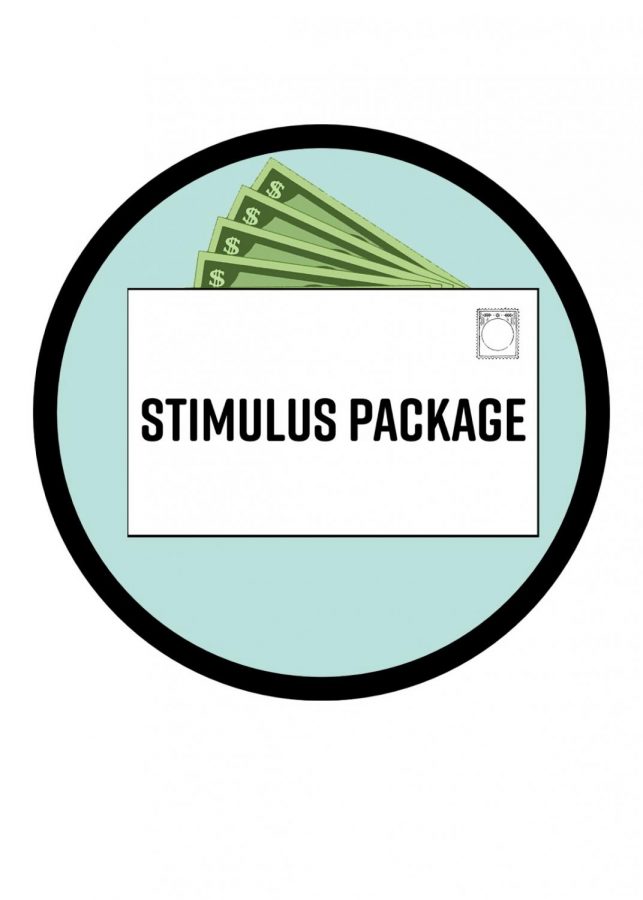Saint Louis University Provides Stimulus for Students in Need
While many college students around the country were not directly provided with financial aid from the federal stimulus package known as the CARES Act, numerous universities around the country have been given money for students. Saint Louis University was included in the list of more than 5,000 universities around the country who have received federal aid, ultimately amounting to $5.14 million.
According to SLU’s Vice President and Chief Financial Officer David Heimburger in a university press release, half of the $5.14 million—$2.57 million—will go directly to students who need it the most “based on unexpected changes and expenses.” The other half of the federal aid will go towards the university’s approximate $10 million cost recovery from refunds issued for room and board. Heimburger said that these amounts do not include the $1.67 million that SLU’s medical practice received from the stimulus package.
The CARES Act instructed universities like SLU to direct the student aid towards current undergraduate and graduate students who have incurred COVID-19 related expenses, according to Heimburger. “Financial questions and concerns voiced by SLU families have helped guide how to best distribute this aid, in adherence with the federal guidelines,” he said.
Heimburger added the federal act encouraged SLU to give special attention to students with unmet needs and Title IV eligible students. However, Heimburger pointed out that the CARES Act did not address COVID-19 related expenses incurred by international students, DACA students or students who were already enrolled in exclusively-online programs, such as SLU’s School of Professional Studies.
To help SLU identify students’ needs, Heimburger said that the university is asking all students who were financially harmed by COVID-19 to fill out the COVID-19 Relief Request Application so that SLU can learn if students are eligible for the CARES Act aid, the student emergency fund or “other forms of institutional aid.”
According to Heimburger, there are two phases of CARES Act grants for eligible students: immediate, need-based grants ($1.5 million total) and unexpected expenses grants ($1.07 million total).
The $300-$500 immediate, need-based grants will automatically be distributed to students whose Estimated Family Contribution (EFC) on the 2019-2020 FAFSA filing is below $12,000. Heimburger said that the grant amount will be awarded on a sliding scale based on the family’s EFC.
SLU expects around 3,500 students to be awarded grants, according to Heimburger. This money will be distributed by May 8 to the students’ MySLU account similar to housing and dining refunds. “Because these grants are automatic, there is no further action required by those students or their families,” said Heimburger.
Unexpected expenses grants, on the other hand, include the unexpected costs students have incurred due to the switch from face-to-face interaction to remote learning. According to Heimburger, these costs include, but are not limited to, food, housing and moving expenses, technology, transportation, child care, medical expenses and increased utility costs.
Heimburger asserted that the aid award amounts will vary based on need and funding availability after SLU reviews the student’s COVID-19 Relief Request Application. The maximum amount awarded to students will be $500. The application will be available to students as long as funds are still available, according to Heimburger. The Vice President and CFO noted that SLU expects to process funding decisions within five days after receiving an application. “Please note that in some cases, additional documentation may be required, which could extend our response time,” said Heimburger.
According to Assistant Vice President of Strategy and Communication Clayton Berry, more than 1,600 students have already filled out COVID-19 Relief Request Applications. Berry said that Heimburger’s April 30 message was emailed to students, parents, families, faculty and staff in order to ensure all SLU students were being reached regarding financial relief opportunities. The message was also shared through the university’s official Twitter, Facebook and LinkedIn accounts, posted on SLU’s COVID-19 website and published in the Newslink email for faculty, staff and students. In an informal survey conducted on nine SLU students, six said that they have seen or read Heimburger’s message. This survey helped to provide additional insight into the overall effectiveness of SLU’s outreach efforts on this issue.
In the press release issued by the CFO’s office, Heimburger said that he hoped the information provided will be useful for SLU students and families in need. “The pain this pandemic has caused our community cannot be understated,” said Heimburger, “Know that we are here for you. We are OneSLU.”
Your donation will support the student journalists of Saint Louis University.




